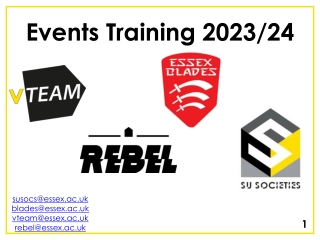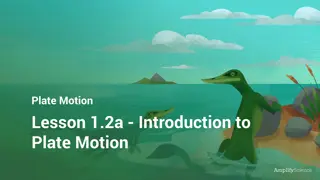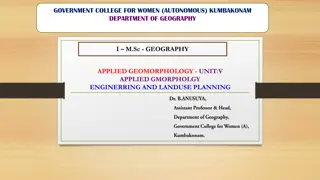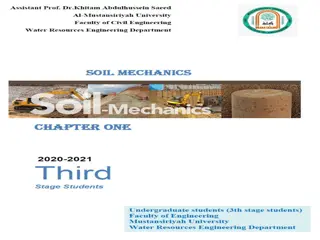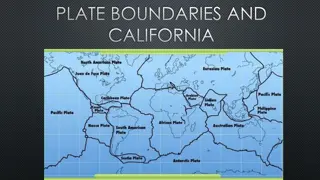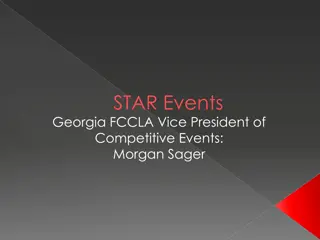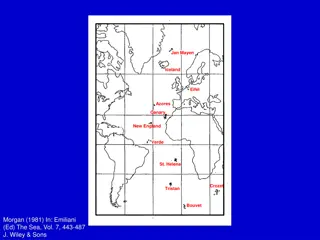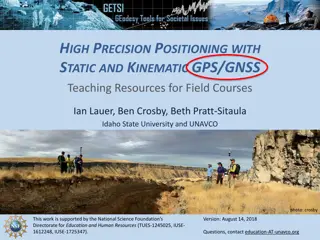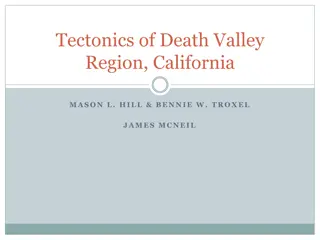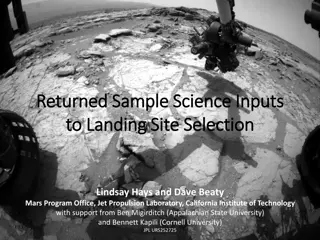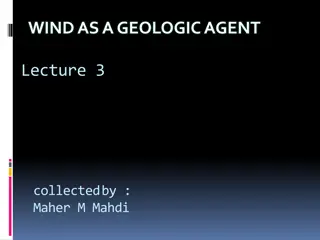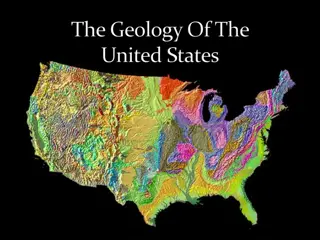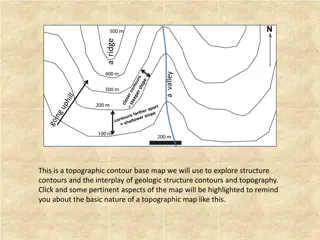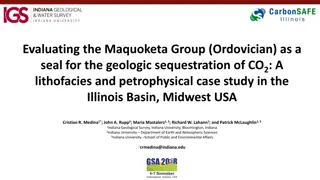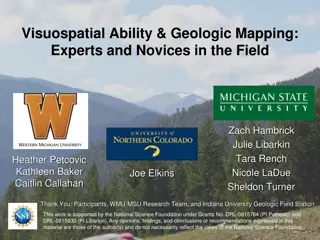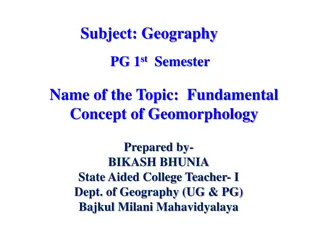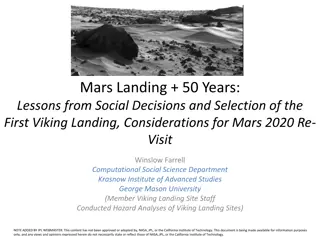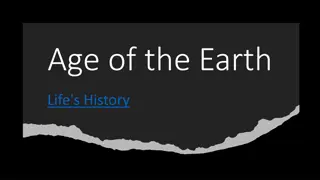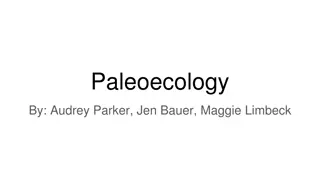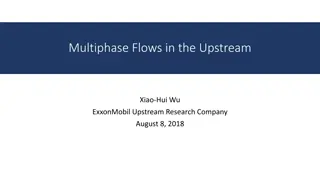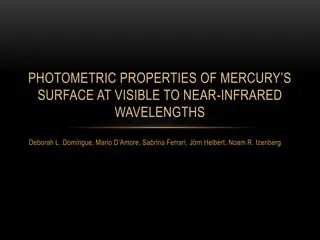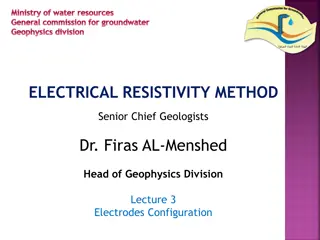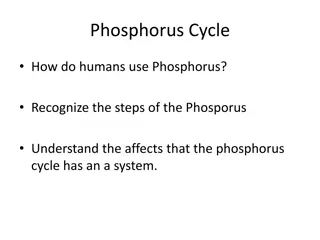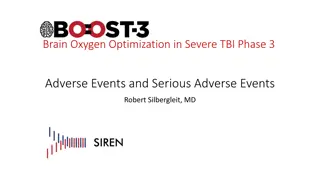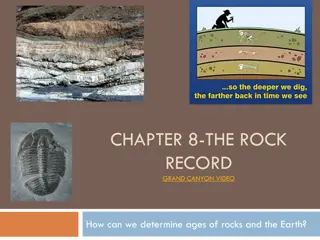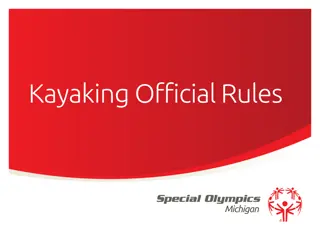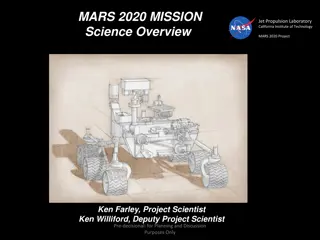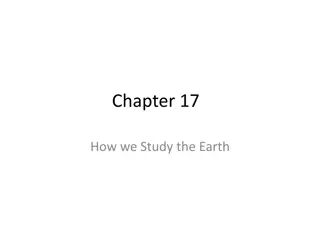Events Training 2023/24 Information Session Details
This document contains details about the Events Training Session for the year 2023/24 at Essex University. It includes information on session formats, how to host events on and off-campus, accessing event toolkits, and contacting relevant departments. Attendees are encouraged to take notes and ask q
1 views • 38 slides
Understanding Adverse Events Following Immunization (AEFI)
Adverse Events Following Immunization (AEFI) are medical incidents that occur after immunization, potentially caused by the vaccine, leading to unfavorable symptoms. Pharmacovigilance plays a crucial role in detecting, assessing, and preventing these events. AEFI can impact immunization programs at
2 views • 40 slides
Medical Geology and Environmental Health Studies at Western Oregon University
Explore the interdisciplinary field of Medical Geology at Western Oregon University, covering topics such as environmental exposure, geological impacts on nutrition, geologic hazards, and water quality. Discover how the Earth's subsystems interact and affect human health, with a focus on pathways of
1 views • 12 slides
One of the Best Corporate Events in Williamsburg
Peachy Keen Balloons provides the Best Corporate Events in Williamsburg. Their team of experienced balloon artists will work with you to create a work of art that perfectly matches your vision and exceeds your expectations. They also offer a photo booth rental service. To make your family events or
0 views • 6 slides
Exploring Plate Motion and Fossils in Science Class
Dive into the fascinating world of plate motion and fossils in this science lesson. Students will learn about the role of scientists, investigate fossils as time capsules, meet a paleontologist, and explore how Dr. Wilson's research sheds light on Earth's geologic history. Engaging activities such a
0 views • 25 slides
Understanding Independent and Dependent Events in Probability
Explore the concepts of independent and dependent events in probability, learn how to determine the probability of independent events using examples, and find out the difference between the two types of events through clear explanations and illustrations. Enhance your understanding of conditional pr
0 views • 39 slides
Understanding Probability in Events
Explore concepts of probability in various events like rolling a die, compound events, simple events, and spinner probability. Learn how to calculate probabilities of different outcomes and understand the difference between single and compound events. Discover key principles in probability theory an
0 views • 13 slides
Engineering Considerations in Applied Geomorphology and Land Use Planning
Engineering works in geomorphology and land use planning involve evaluating geologic factors for projects like road construction in varied terrains such as karst regions, glacial terrains, and areas with considerable relief. Factors like soil composition, drainage, and topographic conditions play cr
2 views • 24 slides
Understanding Soil Behavior and Formation in Civil and Environmental Engineering
Civil and environmental engineering heavily rely on the properties and behavior of soil and rock materials for successful project outcomes. Geotechnical engineering and environmental considerations play crucial roles in dealing with earth materials. This content explores the elemental compositions o
3 views • 18 slides
Plate Boundaries and Geological Events in California
California is located on a plate boundary experiencing major geologic events. The state's landforms are shaped by plate tectonic activity. Understanding stress types at plate boundaries can help prevent damage and save lives. The interaction at plate boundaries plays a crucial role in shaping Earth'
0 views • 14 slides
Guide to Participating in STAR Events in Georgia FCCLA
Discover the significance of STAR Events in Georgia FCCLA, competitive events acknowledging proficiency in various projects, leadership, and career readiness. Learn how to select individual or team events, choose a suitable project, and initiate your project effectively. Empower yourself to excel in
0 views • 19 slides
Evolution of Igneous Activity in Various Hotspot Areas Over Millions of Years
Detailed historical account of igneous activity in hotspot regions such as Iceland, Eifel, Azores, and Canary Islands from Morgan's study. The progression of volcanic events over different geologic periods is illustrated through images and descriptions. The timeline ranges from 200 Ma to present fin
0 views • 13 slides
Comprehensive AP Environmental Science Study Guide
Covering a wide range of topics including Earth Systems and Resources, The Living World, Population, Land and Water Use, Energy Resources and Consumption, Pollution, and Global Change, this study guide provides detailed information on geologic time scales, plate tectonics, atmospheric composition, w
0 views • 168 slides
Enhancing Geoscience Field Courses with High-Precision GNSS Teaching Resources
Explore the benefits and challenges of integrating high-precision GNSS tools in field courses for geoscience students. Discover how students can develop valuable skills, apply GNSS surveys to societal issues, and tackle geologic research questions. Uncover strategies to overcome barriers and motivat
0 views • 8 slides
Tectonics of Death Valley Region, California: A Geological Study
This study delves into the intricate tectonic processes of the Death Valley region in California, focusing on strike-slip and dip-slip fault systems, tensional and compressional stress, and the implications of NE-SW horizontal shortening and NW-SE relative extension. It explores the unique features
0 views • 10 slides
Insights into Mars Sample Return Science Inputs for Landing Site Selection
The Mars Program Office at Jet Propulsion Laboratory has conducted a systematic survey to determine landing site priorities for sample return missions. Insights from the astrobiology and cosmochemistry/petrology communities reveal key interests such as geologic age, rock-water interactions, and dive
0 views • 16 slides
Wind as a Geologic Agent in Shaping Landscapes
Wind has played a significant role in shaping landscapes during times of drier climates, being a key geologic agent impacting erosion and deposition processes. The global wind system, driven by factors such as heating from the sun and the rotation of the Earth, creates convection currents that circu
0 views • 31 slides
The Geology of the United States: Overview of Major Provinces and Landforms
The geology of the United States is diverse and fascinating, organized into 10 key geologic provinces along with Hawaii and Alaska. Orogeny processes have shaped the land over time, adding new land to the Precambrian craton. Geologic maps depict the location and age of rocks in the uppermost crust u
0 views • 45 slides
Basic Principles of Medical Geology and Trace Elements Overview
This session delves into the fundamental principles of medical geology and its impact on human health. It explores how exposure to certain elements in the geologic environment can affect well-being, emphasizing pathways of trace elements into the body and their consequences. Dr. Patrick Asamoah Saky
0 views • 26 slides
Understanding Topographic Contour Maps for Geologic Exploration
A topographic contour base map is a valuable tool for exploring geologic structures and their interplay with topography. By analyzing strike angles, parallel lines, and structure contours, one can determine the orientation, strike, and dip of geologic features. This information can be used to map ou
0 views • 4 slides
Understanding Sedimentology: An Overview of Sedimentary Processes and Rocks
Sedimentology is the study of modern sediments like sand, mud, and clay, along with the processes involved in their deposition. Sedimentologists use this knowledge to interpret Earth's geologic history through sedimentary rocks and structures. Sediment plays a crucial role in enriching soil with nut
0 views • 27 slides
Evaluating Maquoketa Group for CO2 Sequestration in Illinois Basin
Study examines the Ordovician Maquoketa Group's potential as a seal for CO2 geologic sequestration in the Illinois Basin. The project background, methodology, results, and conclusions highlight the importance of the CarbonSAFE Initiative in developing storage sites for carbon dioxide from industrial
0 views • 20 slides
RMS PTO Board Meeting Update and Event Schedule
The recent RMS PTO board meeting covered various topics such as budget tracking, upcoming events, and recent activities. Discussions included PayPal usage, budget allocations for future fundraisers, expenses, and a review of recent events. The meeting also outlined an array of events planned for the
0 views • 7 slides
Visuospatial Ability and Geologic Mapping Study
Explore the relationship between expertise levels in geosciences and visuospatial ability through a comprehensive five-year research project involving novice and expert geologists. Tasks, measures, and mapping techniques were utilized to assess domain knowledge and visuospatial skills.
0 views • 16 slides
The Theory of Plate Tectonics: Continents in Motion
Earth's crust and lithosphere have changed over geologic time, forming tectonic plates that move due to convection currents. The concept of plate tectonics explains how continents fit together, the existence of a supercontinent called Pangaea, and natural phenomena like earthquakes and mountains. Ea
0 views • 28 slides
Understanding Probability of Compound Events
Compound events involve multiple outcomes occurring together, such as independent events where one outcome does not affect another, and dependent events where one outcome affects the other. Complement sets, card probabilities, and mutually exclusive events are also discussed, providing a comprehensi
0 views • 15 slides
Fundamental Concepts of Geomorphology: Exploring Earth Forms and Evolution
Geomorphology, derived from Greek roots for earth and study, focuses on the origin and evolution of Earth's surface features. Geomorphologists study landforms above sea level and the interface between solid Earth, Hydrosphere, atmosphere, and Lithosphere. The fundamental concepts of geomorphology in
0 views • 12 slides
Social Processes in Viking 1 Landing Site Selection
The selection of the Viking 1 landing site was driven by social processes, involving the combined efforts of the Viking flight team, daily activities of the Landing Site staff, and decision-making based on recommendations and votes. The study applied analytical techniques like radar interpretations
0 views • 10 slides
Unraveling the Geologic Mysteries of Earth's History through Dating Methods
Delve into the fascinating world of Earth's history and dating techniques with images and puzzles exploring concepts like relative dating using the Law of Superposition, geological layer sequencing, and absolute dating through half-life principles. Learn how scientists decipher the age of the Earth
0 views • 10 slides
Exploring Paleoecology: Interactions Across Geologic Time
Paleoecology studies the interactions between life and non-living factors in environments over millions of years. Scientists reconstruct ancient environments using paleontology, sedimentology, and chemistry. Foraminifera, single-celled organisms with calcium carbonate shells, are valuable index foss
0 views • 7 slides
Multiphase Flows in the Upstream: A Comprehensive Overview
This content delves into the complexities of multiphase flows in the upstream sector, covering topics such as reservoir management, drilling, subsurface imaging, and reservoir modeling. It explores the challenges of multi-scale phenomena, multi-physics interactions, uncertainty, and inversion in the
0 views • 4 slides
Noise Control Measures and Community Preferences at the Corn Exchange
Various images and references discuss the history of amplified music events at the Corn Exchange, noise complaints leading to control methods by the FTC, impacts on events and community preferences post-control, and survey findings on participant demographics, noise effects, and desired public event
0 views • 19 slides
Photometric Properties of Mercury's Surface at Visible to Near-Infrared Wavelengths
The study focuses on the photometric properties of Mercury's surface from visible to near-infrared wavelengths using data from MESSENGER's MASCS instrument. Observations were conducted at 14 sites to characterize the planet's photometric behavior, providing valuable insights into its geologic units.
0 views • 21 slides
Geophysical Methods for Groundwater Exploration: Electrodes Configuration and Array Types
The lecture discusses the utilization of electrical resistivity methods in geologic investigations, focusing on electrode configurations such as symmetrical linear and non-linear arrays. Detailed insights are provided on the Wenner and Schlumberger arrays, including their properties and depth of inv
0 views • 12 slides
Understanding the Phosphorus Cycle and Its Impact on Ecosystems
Humans use phosphorus in various ways, from being a vital component in DNA, RNA, and cell membranes to its role in energy transfer processes. The phosphorus cycle involves steps such as weathering of rocks, phosphate mining for fertilizers, excretion/decomposition, and geologic forces. However, exce
0 views • 8 slides
Brain Oxygen Optimization in Severe TBI: Adverse Events Analysis
This study led by Dr. Robert Silbergleit focuses on adverse events in brain oxygen optimization for severe Traumatic Brain Injury (TBI) patients. It outlines key points for reporting adverse events, discusses relatedness algorithms, and presents scenarios to analyze adverse events occurrence post-en
0 views • 24 slides
Understanding Rock Ages: A Geologic Perspective
Geologists determine the ages of rocks and the Earth using principles like Uniformitarianism, Relative Age, Law of Superposition, and Principle of Original Horizontality. By analyzing rock layers, sedimentary structures, and unconformities, they estimate Earth's age to be around 4.6 billion years ol
0 views • 15 slides
Official Kayaking Rules for Michigan Events
Official rules for kayaking events in Michigan including information on events offered, uniforms, equipment requirements, and general rules for athletes. Athletes can enter up to three events but must choose between Traditional or Unified events. The rules cover attire, required equipment such as li
0 views • 14 slides
Mars 2020 Mission Science Overview
Mars 2020 mission, led by Jet Propulsion Laboratory, aims to study the geologic history and astrobiologically relevant aspects of Mars. The mission involves characterizing ancient environments, searching for biosignatures, and collecting samples for possible return to Earth. The project focuses on f
0 views • 11 slides
Exploring Earth's Geologic Time and Extinction Events
Geologic Time reveals the Earth's 4.54 billion-year history through fossils, rocks, and ice cores. The Geologic Timescale provides insights into the planet's past, showcasing diverse life forms and major evolutionary events. Extinction events, both gradual and rapid, shape eras in Earth's timeline,
0 views • 22 slides
